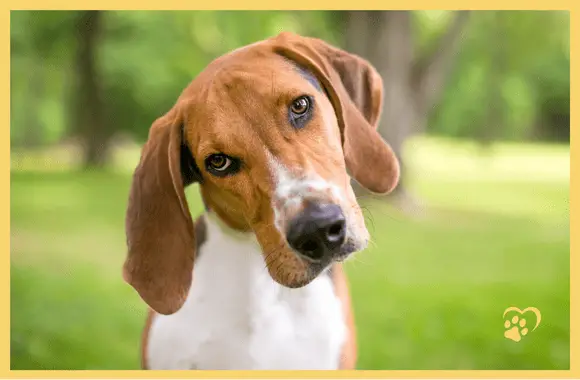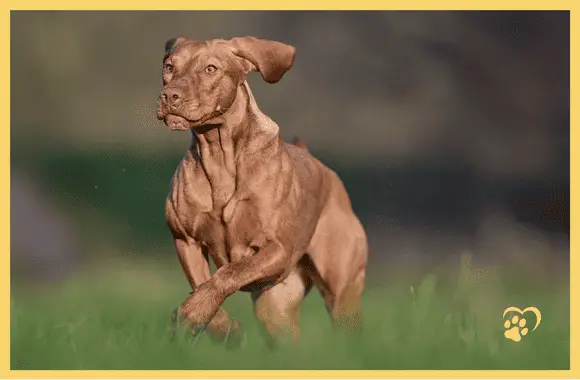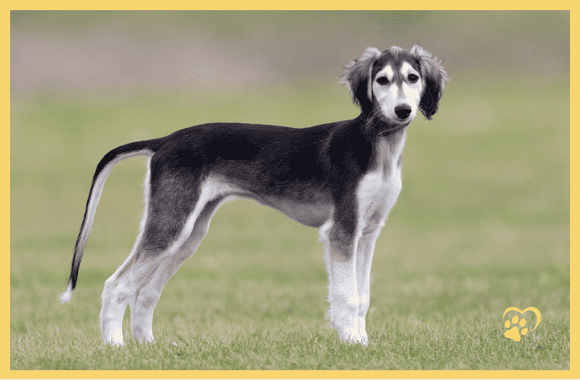The training of hunting dogs is an important and exciting area for many dog owners and future dog owners, as this is where the foundation for a successful cooperation between man and animal is laid. In this blog post we would like to give you an overview of the different phases of training and give you helpful tips for a successful education of your hunting dog. Whether you are already the proud owner of a hunting dog or just getting interested in this fascinating world, our goal is to provide you with valuable knowledge and practical tips.
More info about hunting dog breeds offers our article When the nose sets the tone: 21 hunting dogs in portrait 
Phase 1: The puppy period (8-16 weeks)
In the first phase of hunting dog training, the so-called puppy period, the focus is on socialization, imprinting and learning the first basic commands. In this early stage of life, the little hunting dogs are particularly receptive and curious. Use this time to create a solid foundation for future training.
Socialization and imprinting
- Let your puppy meet many different people, dogs and environments during this phase.
- Make sure that all encounters and experiences are framed in a positive way to avoid anxiety and uncertainty.
- Provide regular contact with conspecifics to encourage good social behavior.
Introduction of basic commands
- Start training the first basic commands such as "sit", "down" and "here" early on.
- Practice in short, playful training sessions to keep the puppy's attention.
- Reward your dog consistently and quickly to help the learning process.
Simple environmental habituation
- Get your puppy used to different environments such as forest, field and city.
- Slowly introduce the dog to different stimuli such as sounds, smells and movements.
- Make sure that the puppy can explore its environment at its own pace.
Tips for the start of training
- Bond building: spend lots of time with your puppy and strengthen the bond through shared activities and positive reinforcement.
- Patience: Don't expect too much at once. Every dog is individual and needs different amounts of time to make progress.
- Consistency: stay consistent in your expectations and communication with your dog to avoid misunderstandings.
- Relaxation: Do not forget to also give your puppy enough rest and relaxation. Overstressing can make the learning process more difficult.
Overall, the puppy period is a crucial phase in hunting dog training. Use this time to create a good basis for the further training phases and to offer your dog the best possible starting conditions.

Phase 2: The young dog period (4-12 months)
The young dog period is an important developmental phase for prospective hunting dogs. During this time the focus is on consolidating the basic commands, starting the hunting training and introducing the dog to its future tasks in the field and in the forest.
Deepening of the basic commands
During this phase, training of basic commands begun in puppyhood should be continued and reinforced. These include:
- "Sit", "Down" and "Here"
- "Stay" and "Foot
- First beginnings of "Steadiness" training (calmness and self-control)
Start of hunting training
In the young dog period the actual hunting training starts. This includes among other things:
- Fetch: Train the retrieve first with non-hazardous objects such as toys or dummies.
- Pointing: Depending on the breed, pointing can be practiced by teaching the dog to indicate game or toys without chasing them.
- Tracking work: introduce your dog to tracking by offering him drags or artificial tracks, for example.
First steps in the field and forest
To best prepare the young hunting dog for its future tasks, you should accustom it to different environments:
- Let your dog run free in the field and forest under supervision to get him used to the stimuli there.
- Practice retrieving under distraction and ignoring game to encourage controlled behavior in the field.
Dealing with game and shot resistance
An important aspect of hunting training is the correct handling of game and shot strength:
- Gradually accustom your dog to the presence of game by first introducing him to dead animals and later to live ones.
- Practice gunfire training by slowly getting your dog used to loud noises and eventually combining them with shots from a distance.
What dog owners should pay attention to
- Patience and consistency are especially important in this phase. Young dogs go through a phase of uncertainty and testing boundaries.
- Tailor training to your dog's individual needs and learning pace.
- Make sure the dog continues to have enough social contact with conspecifics to maintain good social behavior.
Overall, the young dog period is an exciting and challenging phase in hunting dog training. With patience, consistency and individually adapted training you lay the foundation for the further success of your hunting dog.

Phase 3: The advanced training (1-2 years)
In the advanced training of hunting dogs, the focus is on specializing in the particular breed and its requirements. In addition, the focus is on water and drag work, improving leash handling and preparing the dog for hunting dog tests.
Specialization in the particular breed of hunting dog and its requirements
Depending on the breed and the area of use, there are different requirements for the hunting dog. In this phase, you should therefore specifically address the needs and abilities of your dog:
- Learn about the specific requirements of your breed of hunting dog and train them specifically.
- Be sure to keep training varied and in line with your dog's natural instincts and abilities.
Water work and drag work
In advanced training, hunting dogs should also be trained in water work and drag work:
- Train your dog to retrieve from water by letting him practice first on shallow water and later in deeper water.
- Practice finding game or dummies at the end of a drag to improve your dog's drag work skills.
Work on the leash and free following
Good leash handling and free following are essential for a successful hunting dog:
- Practice leash walking by getting your dog to walk beside you without pulling and in the correct position.
- Train free-following by keeping your dog close to you, even off-leash, and teach him to pay attention to commands and body language.
Preparation for hunting dog tests
Hunting dog trials are an important way to test and develop your dog's skills:
- Find out about the requirements of the different tests and choose the right one for your dog.
- Train specifically the required exercises and prepare your dog for the test situation.
Tips for advanced training
- Remain patient and consistent, even though progress may sometimes seem slower at this stage.
- Match training to your dog's age and ability to avoid overexertion.
- Take advantage of the experience and knowledge of experts, for example, by visiting a dog school for hunting dogs or exchanging ideas with other hunting dog handlers.
Advanced training is about refining your hunting dog's skills and preparing him optimally for his future tasks. With patience, consistency and targeted training, you lay the foundation for successful cooperation with your hunting dog.

Phase 4: The experienced hunting dog training (from 2 years)
In experienced hunting dog training, the focus is on perfecting hunting skills, teamwork between handler and hunting dog, and participation in tests and competitions. Furthermore, the focus is on further training and specialization in certain types of hunting.
Perfection of hunting skills
This phase is about further refining and perfecting the skills learned so far:
- Practice basic commands and hunting exercises regularly to continually improve your dog's performance.
- Train more difficult and challenging exercises to further develop your hunting dog's skills.
Teamwork between handler and hunting dog
A successful hunt is only possible when handler and hunting dog work well together:
- Make sure that you and your dog understand and can relate to each other.
- Train together under realistic conditions to practice working together.
Participation in exams and competitions
Participating in trials and competitions is an important step in proving your dog's ability:
- Regularly enter your dog in trials and competitions to test and develop his skills.
- Think of these events as opportunities to gain experience and share ideas with other hunting dog handlers.
Further training and specialization in certain types of hunting
Depending on your interests and needs, you can train and specialize yourself and your dog in certain types of hunting:
- Find out about different types of hunting and decide which are best for you and your dog.
- Attend seminars, workshops or courses to further educate yourself and your dog in your chosen hunting style.
What dog owners should pay attention to at this stage
- Make sure to keep the training varied and provide enough challenges for your dog.
- Do not overtax your dog, but adapt the training to his ability.
- Don't forget to continue to provide your dog with enough social contact to maintain good social behavior.
In experienced hunting dog training, the focus is on perfecting the skills and cooperation between handler and hunting dog. With targeted training, further education and participation in tests and competitions, you create the best conditions for a successful hunting career of your dog.
Closing words
The training of a hunting dog is a lengthy process that is divided into different phases: from puppyhood, through young doghood and advanced training, to the experienced hunting dog. Each phase focuses on different things, such as socialization, imprinting, basic commands, hunting skills and specialization in different types of hunting.
A decisive factor for the success of the training is the patience and consistency of the dog handler. It is important to continuously encourage the dog's progress and at the same time not to overtax him. The bond between handler and hunting dog plays a central role here. A strong bond and mutual understanding are the basis for successful cooperation in hunting.
All this requires time, commitment and patience. With the right approach, a good bond with your dog and consideration of the different training phases, you lay the foundation for a successful hunt.
*Last update on 2024-05-07 / Affiliate links / Images from Amazon Product Advertising API
